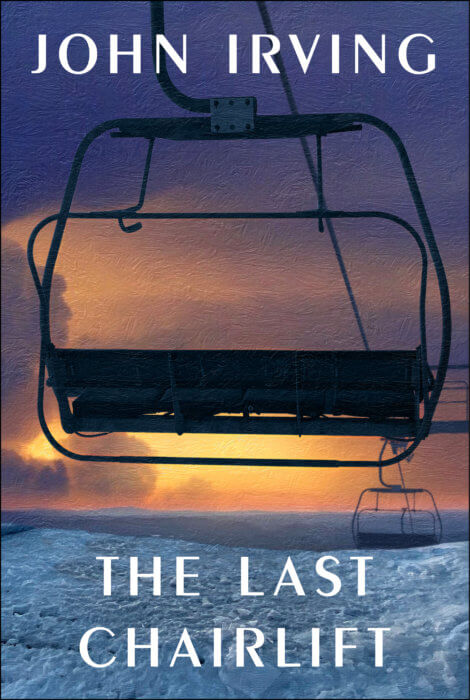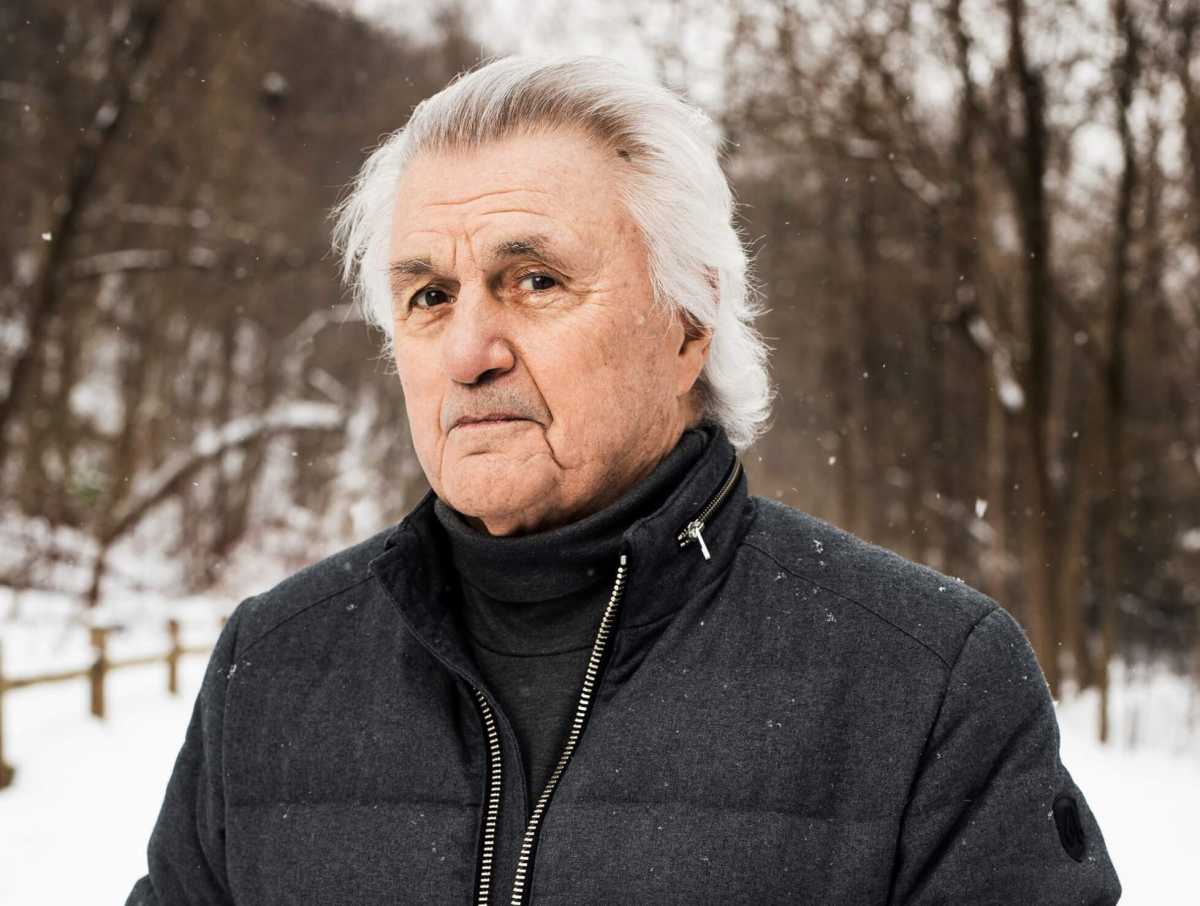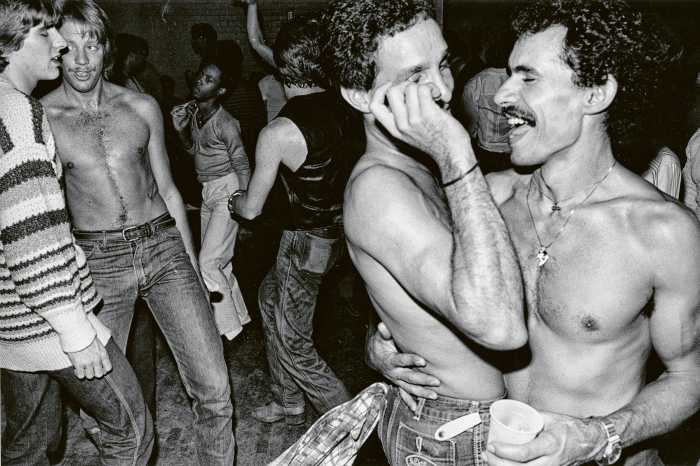In John Irving’s acclaimed novel from 1978, “The World According To Garp,” the character Roberta felt like a real person, and an admirable one, living the truth of her identity with dignity, and a warm and generous love for others.
Irving’s latest, almost 900-page novel, “The Last Chairlift,” has as its explicit subject the impact of sexual intolerance. The extended Brewster family of New England is comprised entirely of so-called sexual minorities all revolving protectively around their one heterosexual member, a feckless but loving stand-in for the author.
Irving, now 80 and living in Toronto, agreed to an interview with Gay City News specifically to discuss the new novel in the context of his readership within the LGBTQ community.

How do you hope the queer community, particularly the trans community, receives this novel?
I hope the queer community, particularly the trans community, sees me as an ally — I am. My two Lambda Literary Awards mean a lot of me. “In One Person” won a Lambda for Bisexual Fiction in 2012. I also won the Bridge Builder Award (2013); that’s the Lambda Award for a straight writer who creates empathetic queer characters. Edmund White, my longtime friend, presented me with the Bridge Builder Award.
You take pains not to present a politically correct portrait of your characters, nor are they themselves so tightly corseted. They’re nice and messy. For example, the family sometimes, lovingly, continue to call Elliot, a post-transition transgender woman, Mr. Barlow when en famille. How do you hope the novel helps people to tolerate their loved ones’ imperfect love?
Thank you for noticing the persistent but loving use of Mr. Barlow, when she’s en famille. Similarly, the same members of Elliot’s family bristle at an outsider who dares to call the pretty, post-transition Elliot a Mister. Names and pronouns matter, but family and other loved ones are forgiven when they slip up. I’m also trying to emphasize that, within a family, the recognition of the difficulty of transitioning is sometimes expressed in the loving use of a trans woman’s former name. This is delicate ground; someone going through the transitioning process needs all the support he or she [or they] can get.
What had your children told you about their take on Roberta Muldoon as they were growing up and into themselves?
I’ve told this story before; you may have heard it. I was a young, unknown writer with two small children when I was writing “Garp.” I was back home in New Hampshire for a holiday like Christmas or Thanksgiving. I had a younger brother and sister — boy-girl twins — who were both gay. My mother was working in a Rockingham County family counseling service. I’d begun “Garp” before Roe v. Wade; it would be published after Roe. My mom had counseled some very young, (occasionally underage), girls who were pregnant and unmarried; the choice to have or not to have an abortion isn’t easy, even when you have a choice, but it certainly was a safer choice after “Roe.” I overheard my mom say something from another room; maybe she was speaking to someone on TV. “If men in power can treat women as if we’re sexual minorities, imagine how much worse they’ll treat gay men and women, who really are sexual minorities,” she said. More than one of my fictional mothers have said something like this.
It was the early 1980s when George Roy Hill asked me if I would write the screenplay for “Garp,” but I knew we didn’t see eye to eye about Roberta. George was a World War II guy; he couldn’t see past the comedic part of a transgender woman who’d been an NFL player. A pity, because John Lithgow, who was cast as Roberta in the film, could have played her as I wrote her. Roberta is a force of normality in an otherwise extreme world; she is the only character who loves Garp and his mother equally, the only character who isn’t in a rage about someone or something. I declined to write the “Garp” script because George wouldn’t do Roberta my way. Now I get another chance — in the TV series of “Garp” that’s in development, for which I’ve written five episodes. I’m not the head writer, but I’m working with her; I’ll give her all the feedback I can. I told Warner Brothers from the beginning that the head writer should be a woman; I also told them that the story is more in line with “The World According to Jenny” than it is with “The World According to Garp.” I think we’ll get it right this time. It’s a feminist novel. When it was published, it was called a feminist novel—both in praise and derogatorily.In “The Last Chairlift,” as I was writing the character of Elliot Barlow, the good stepfather who transitions to female, I was conscious of wanting to do a good job with my trans woman hero for my trans daughter, Eva. Coincidentally, I also got to review a novel with a trans woman hero this year — James Hannaham’s “Didn’t Nobody Give a Shit What Happened to Carlotta,” which I reviewed for the New York Times Book Review. I don’t review a novel unless I love it.
As for Roberta, it’s simply a fact that I created an empathetic trans woman hero before my Eva was born.
You are not writing for the intolerant, are you?
I have no tolerance for intolerance. If you want to be intolerant of something, try being intolerant of intolerance.
Anything you’d like to say to our readership, particularly to the New York City transgender community?
This isn’t a question for a fiction writer. I’ll stand by “The Last Chairlift” as a novel with a purposeful and well-crafted architecture; it has an ending that’s been set up. I’ll stand by Elliot Barlow as a trans hero, too. I’m on record as an advocate for LGBTQ rights. I see The Last Chairlift as an ally to the transgender community, as I am.

































